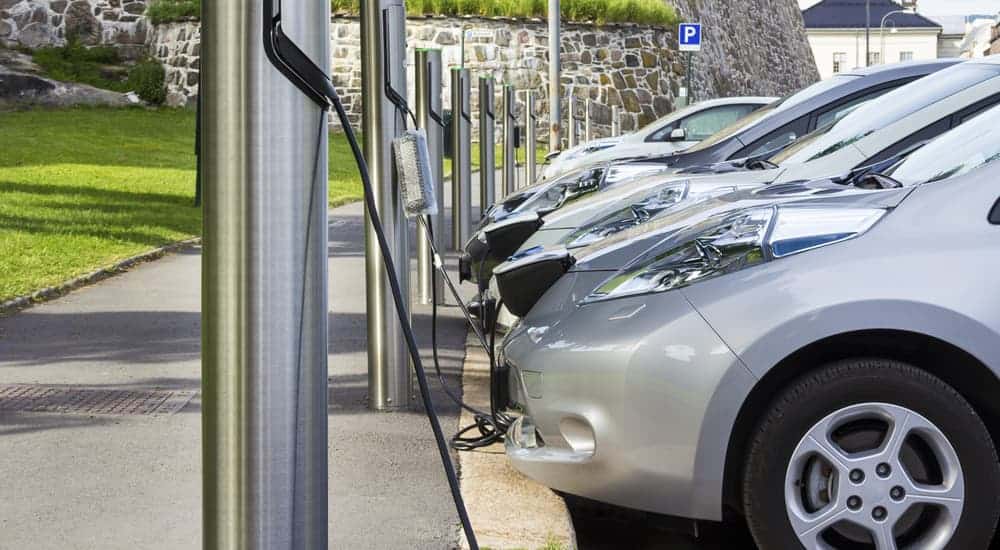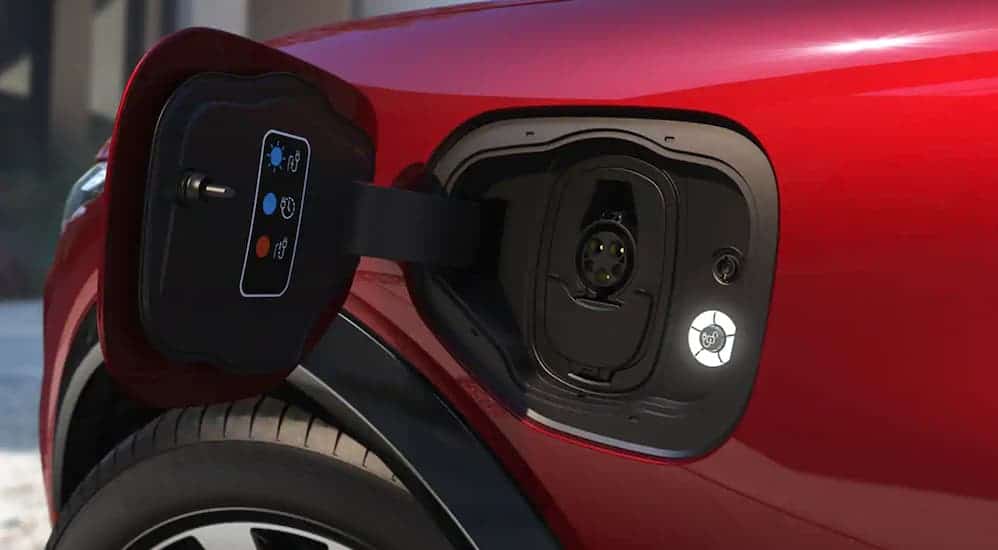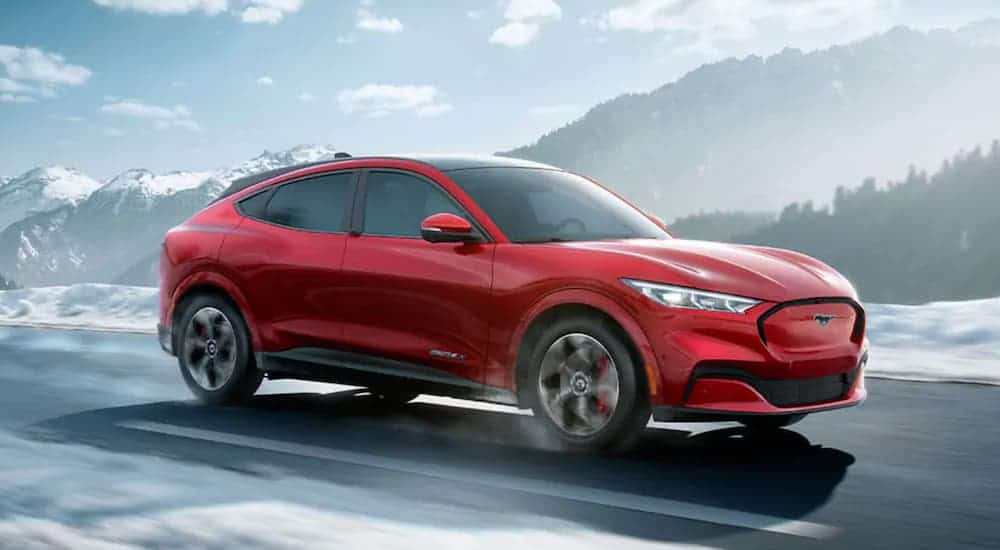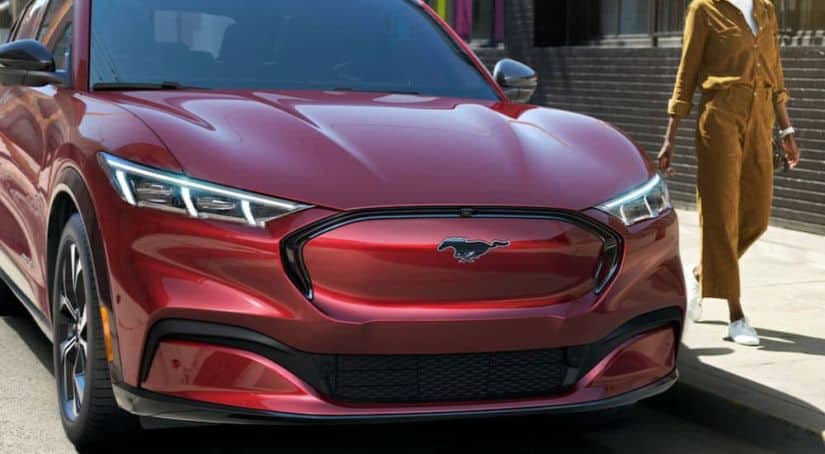The recent announcement by Ford Motor Company of the new 2021 Mach-E, an all-electric crossover between the historic Ford Mustang sports car and an SUV, shows that the company has gone all-in on alternative energy vehicles. Some may see this as a big gamble, but if trends in the electric vehicle (EV) market continue, it should be one that pays off in the long run. There already is a full lineup of Ford SUVs, with one of the most extensive and comprehensive lines in the industry. These include the Ecosport, the Escape, the Edge, the Explorer, the Expedition, and the Flex, providing drivers with plenty of options to choose from, including many hybrid engines, such as on the 2020 Escape SE Sport Hybrid, and the 2020 Explorer Limited Hybrid. With the 2021 Mach-E, Ford is going to cross the threshold into an all-electric performance SUV. This then begs the question: Who is an EV SUV for?
Electric Vehicles are the New Wave From the Past
When automakers began discussing building EVs, many people thought this was something new. What can sound more futuristic than a vehicle that runs on electric instead of gas or diesel fuel? However, this is actually an old technology. During the Taft administration over 100 years ago, First Lady Nellie Taft drove her two-seat Baker Queen Victoria electric car around DC. At the time, the Nation’s Capitol boasted over 1,325 electric cars, lagging behind the 4,000 in the Windy City and the 3,200 in the Big Apple. Nevertheless, the electric car became a victim of cheap and plentiful gasoline. At the time, no one foresaw that the gravy train of cheap crude oil would some day start to dry up. Demand was low, supply was great, and there were no wars and embargos in the oil producing regions. Fast forward to today, and there are concerns about the world’s oil supply being threatened by war and instability. Demand has increased exponentially due in part to the emerging economies like China and India. This drove automakers to improve fuel efficiency starting in the 70s and continuing today. Moreover, the search for alternative energy sources has expanded over the last few decades.

People back at the dawn of the automotive age were not as concerned about environmental issues. The phrases “global warming” and “climate change” had yet to be coined, and folks just didn’t seem worried that the leaded gasoline they were burning in their internal combustion engines were damaging the air they breathed and the water they drank. Today, we don’t have that luxury.
EVs provide the ability to operate a motor vehicle while producing little or no pollution. The carbon impact of an EV can be significantly less than gas engines and even hybrids. One major reason that people should consider buying an EV is to reduce their personal carbon footprint through zero emissions. However, if you are skeptical about the pollution issue, then you probably need a better reason before you buy an EV.
The Benefits of EVs
There are a number of great reasons to buy an EV, aside from the concerns about dwindling resources and diminishing ozone. First, in the long run, you will find it cheaper to run your EV than a gas or diesel engine vehicle. In some cases, the cost for charging an EV can be as much as one-third of the cost of buying gasoline for your vehicle. You may make the argument that, while it may cost less, you don’t have anywhere to go to charge your EV. Sure, in the past you were limited to having to plug in at home or the office. But these days, EV charging stations are springing up across the countryside like mushrooms after it rains. In my neighborhood, the new shopping center near my house has a dozen brand new charging stations, conveniently located next to a Starbucks, so drivers can enjoy a fresh cup of coffee while they wait for their EVs to finish charging. Many of the people who own and operate these charging stations offer rate plans that are better than those offered by gas stations.

Another reason for choosing an EV is that they can also be cheaper to maintain. There are fewer working parts on EVs, and no starting engines, fuel injection systems, radiators, and exhaust systems that require frequent maintenance. In addition, many EV manufacturers provide warranties on the batteries for their EVs.
There is also a hidden safety benefit to EVs. EVs tend to have a lower center of gravity than other vehicles, making them less prone to rollovers, one of the most dangerous types of accidents. In addition, the lack of a fuel tank makes fires and explosions much less likely. Finally, electric engines generate instant torque, giving them quicker acceleration than other vehicles. This also is why many find EVs to provide a smoother overall ride with more responsive acceleration and deceleration.
Why an EV SUV?
When EVs were first introduced, most models were compacts and subcompacts, as there were concerns about the power and speed of vehicles running on an electric engine. The focus was on fuel efficiency. That all changed when Tesla introduced the Roadster, showing that an EV had the power to set speed records. But the question remained if an electric engine could provide sufficient power for a larger vehicle like a pickup truck or an SUV. The answer was a resounding, “yes.”
Probably the biggest reason why you should consider buying an EV SUV is fuel economy. Let’s face it, it is not easy to find an SUV with all the roominess and features you desire that can get an estimated gas mileage of at least 19 miles per gallon in combined driving. Many manufacturers have to either compromise on vehicle weight or engine size in order to get an adequate fuel efficiency. If they skimp on total vehicle weight, then you may be limited to having just two rows of seats, a smaller cargo compartment, or a loss of creature comfort features. If they skimp on the engine size, then your SUV may feel underpowered, and you may see limits on maximum towing weights. It really can seem like the worst of all worlds. Having an SUV with an electric motor can give you the power you need for the vehicle weight you desire, without sacrificing fuel economy. In addition, your SUV may have a greater range with an electric motor than either a gas or diesel engine.

We Have Seen the Future and it is Mach-E
The all-new 2021 all-electric Mustang Mach-E is set to hit dealerships in the spring of 2021. This is the future of the SUV. With an estimated MSRP of $43,895, the Mach-E may seem expensive. However, you will qualify for the maximum $7,500 Federal Electric Drive Motor Vehicle Tax Credit. In addition, you will save at the pump, because you won’t need to use one anymore. Plus, the Mach-E is expected to have a range of up to 300 miles on a single charge. The Mach-E should be an EV SUV with speed to burn. The Mach-E GT has been clocked at 0-60 mph in just 3 seconds! The Mach-E Pony will be available in all-wheel drive to provide you with exceptional handling in all weather conditions. The engineers at Ford Motor Company have done their jobs to maximize space on the vehicle, including an extra front-load compartment that adds an extra 4.8 cubic feet of storage space. This is a brilliant way of using the space left over from the now unnecessary front engine compartment. All Mach-E SUVs are expected to come with standard Ford Co-Pilot360 2.0 and Ford Co-Pilot360 Assist 2.0, so you and your passengers will benefit from all the latest safety technologies.
To answer the initial question, an EV SUV is for any driver who wants to get the most out of his or her SUV. Do you want an SUV with better mileage? Get an EV SUV. Do you want one with breakaway speed like the Mach-E’s namesake Mustang? Get an EV SUV. Do you want power, dependability, safety, and a luxurious ride, all in one vehicle? Get an EV SUV. And if you are looking to buy an EV SUV that ticks all the boxes, then your wait is almost over. The 2021 Mustang Mach-E is the SUV for you.



